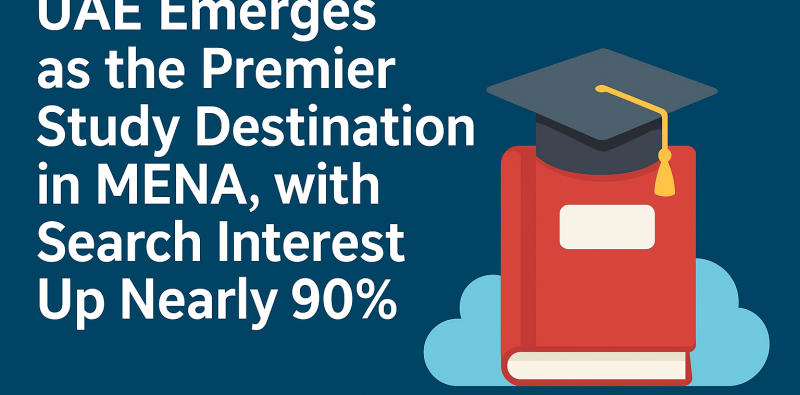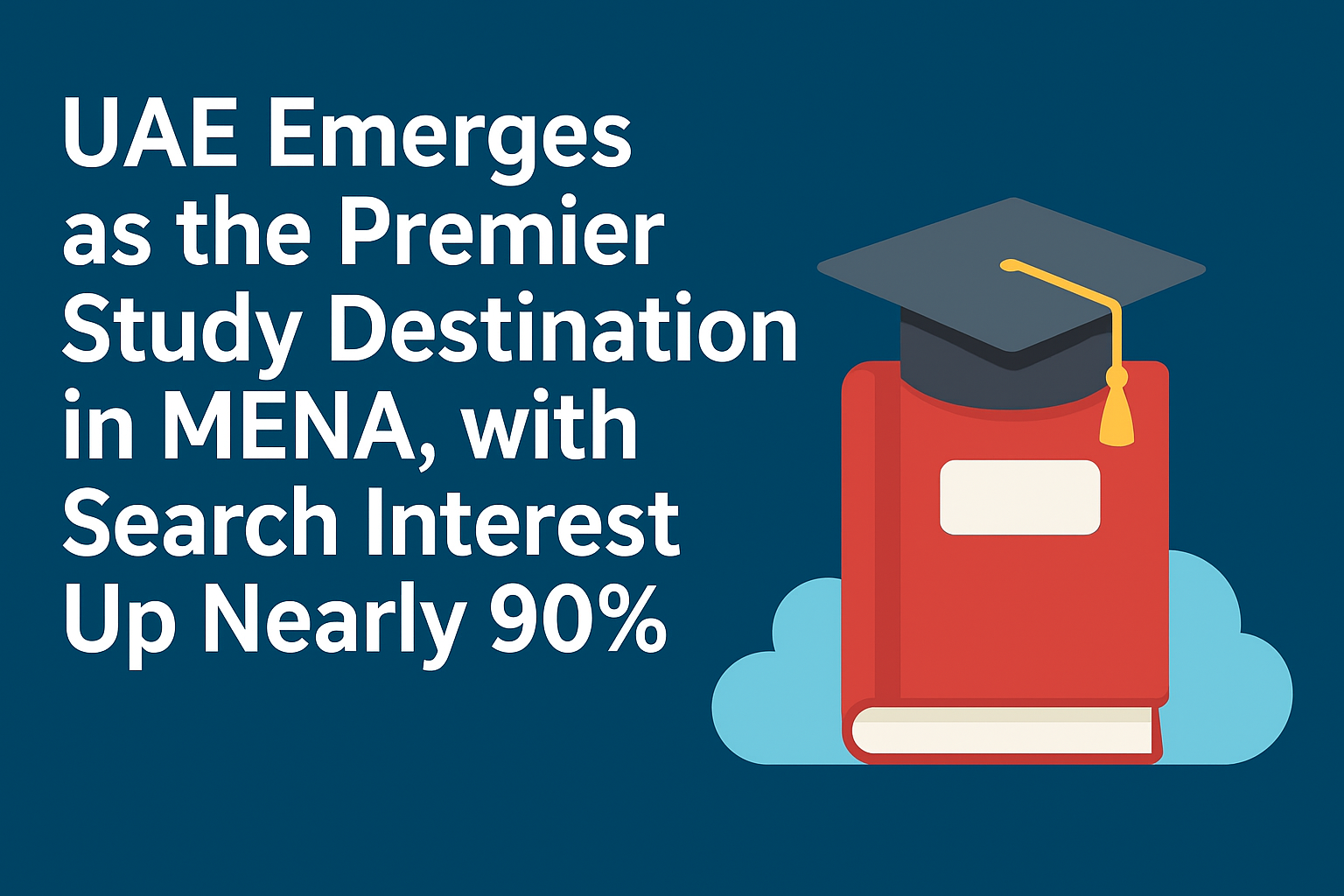

The United Arab Emirates has surged ahead as the most sought-after academic destination in the Middle East and North Africa (MENA), commanding an impressive 59% of all region-specific study-related searches on Keystone’s data platforms.
Between June 2024 and June 2025, interest in MENA-bound international study opportunities nearly doubled, with the UAE seeing the most remarkable gain. This surge spans a wide range of student markets, from South Asia (notably India and Pakistan), Southeast Asia (Singapore and Indonesia), East Asia (Hong Kong), to Europe (France and Germany), and even includes a rising inquisitiveness among students in the United States.
Based on haulings by Keystone, program offerings and tuition affordability are the biggest attractors drawing students toward the UAE’s academic institutions.
Suneet Singh Kochar, CEO of Fateh Education, is confident that “Dubai isn’t just offering education – it’s providing a global career springboard, with an educational ecosystem that’s hard to replicate in the face of adverse policy adjustments”. He adds that traditional powerhouses like the US, UK, Canada, and Australia (often referred to as the “Big Four”) are losing ground due to tighter visa regimes, policy changes, and rising costs, prompting students—especially from India and South Asia—to explore more pragmatic destinations.
Moreover, Dubai offers a compelling value proposition for families: quality education within a mere four-hour flight, cultural familiarity, and the reassurance of family proximity. Enhanced access to safe, high-quality healthcare and a multicultural, inclusive environment further boost its appeal among families concerned about safety and comfort—particularly for younger undergraduate students.
Institutional support plays a role too: the UAE Ministry of Higher Education and Scientific Research has streamlined the admissions process for Fall 2025–2026 applicants, cutting documentation requirements by 86% and consolidating application and registration across 59 higher education institutions via an electronic portal.
Kochar attributes part of this rising appeal to the career-oriented curriculum being offered: UAE universities align programs in AI, sustainability, logistics, and fintech with national economic priorities, offering strong industry ties, internships, live project placements, and employer networks that significantly boost graduate employability.
Why It Matters
-
Diversifying Alternatives: With the “Big Four” destinations facing challenges, the UAE is quickly solidifying its role as a resilient and attractive educational hub.
-
Strategic Student Mobility: Students are increasingly valuing geography, accessibility, career pathways, and academic quality—areas where Dubai excels.
-
Policy as a Catalyst: Reduced barriers to admissions and institutional agility underscore the UAE’s ability to adapt swiftly to shifting global education trends.
-
Career-Ready Education: Integrating national economic goals with educational offerings aligns student outcomes with real-world demand.
As student interest continues to climb, all eyes are on the UAE to see how it will sustain and build upon this momentum in the global education landscape.
Let me know if you’d like a breakdown of the key factors by region or implications for specific student groups!
